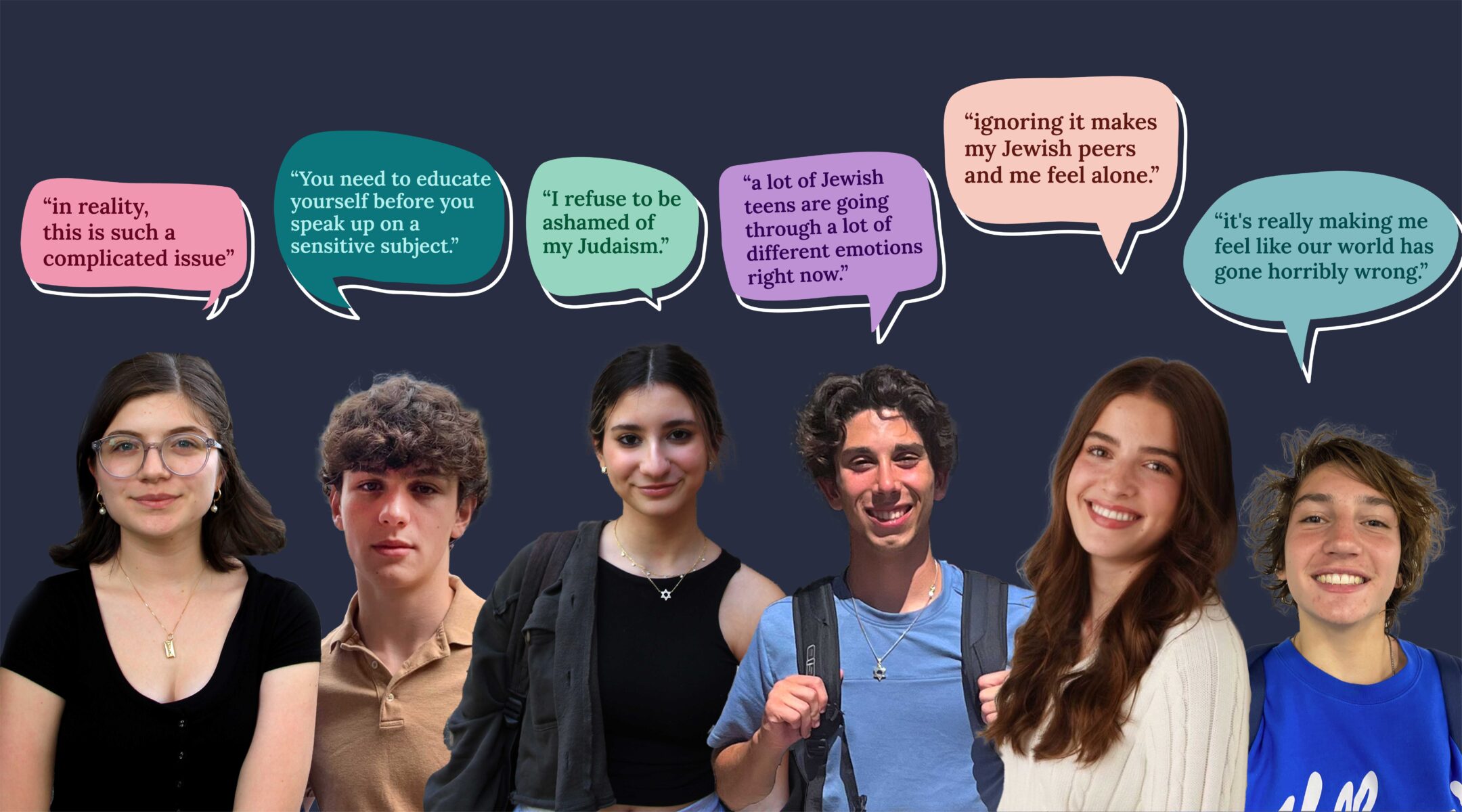(JTA) — Hamas’ deadly attack on Israel on Oct. 7 was thousands of miles away for Jewish teens in the United States — yet they have found themselves caught in a crossfire of opinions, misinformation and anger about the situation ever since.
JTA Teen Journalism Fellows interviewed their peers about what they have been hearing and feeling over the last three weeks. Our reporters discovered that many high schoolers were afraid to go on the record, saying they feared aggravating tensions or didn’t want to get “canceled” within their community. The ones that did agree to talk, however, say they are doing their best to stay strong and feel united, not divided.
Some of the teens interviewed expressed their concerns about antisemitism while others offered insight into what’s happening in their social media circles. From Jewish day school students in the West to public school kids in the South, here’s what American Jewish teens have to say about the war between Israel and Hamas.
Jacob Abowitz, 17, Parkway Central High School, St. Louis
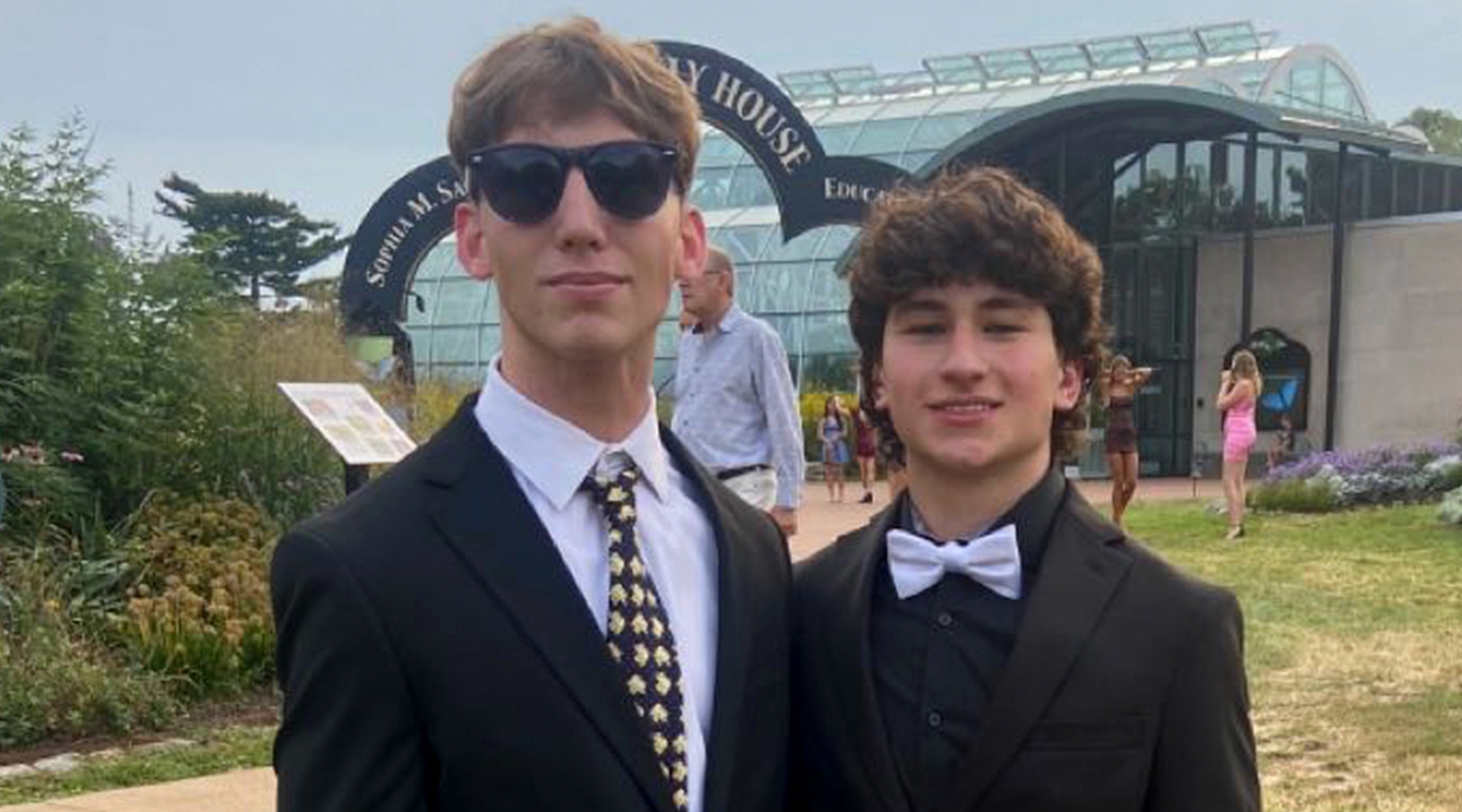
Abowitz, right, and a friend. (Ami Gelman)
I’m trying my best to show my pride at being Jewish. Just trying to wear my Star of David to school and in public and anywhere I go.
Nathan Arst, 17, Parkway Central High School, St. Louis
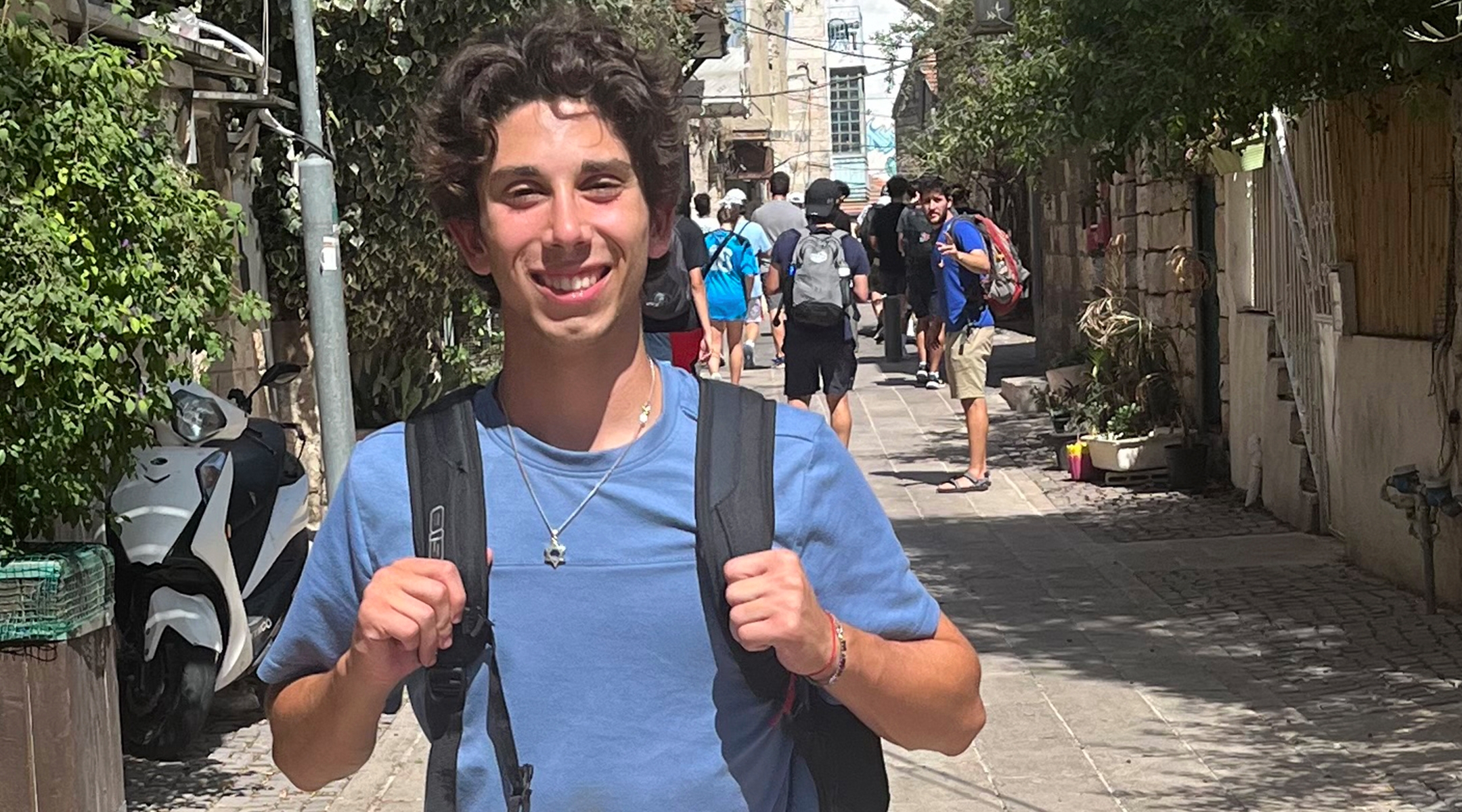
(Courtesy)
Being an American teen Jew, if there was one thing I wish adults would know about [us is that] sometimes it can be really hard. For me, I’m fortunate, being surrounded by a strong Jewish community at my school and at my temple, so my community is really supportive. But some of my friends go to schools with small Jewish populations and feel very isolated. People have to keep that in mind. Judaism — you can’t always see it from the outside, unless someone is wearing a form of identification like a necklace or a kippah. You can’t always see it and a lot of Jewish teens are going through a lot of different emotions right now.
Avi Askenazi, 14, Denver Academy of Torah, Denver
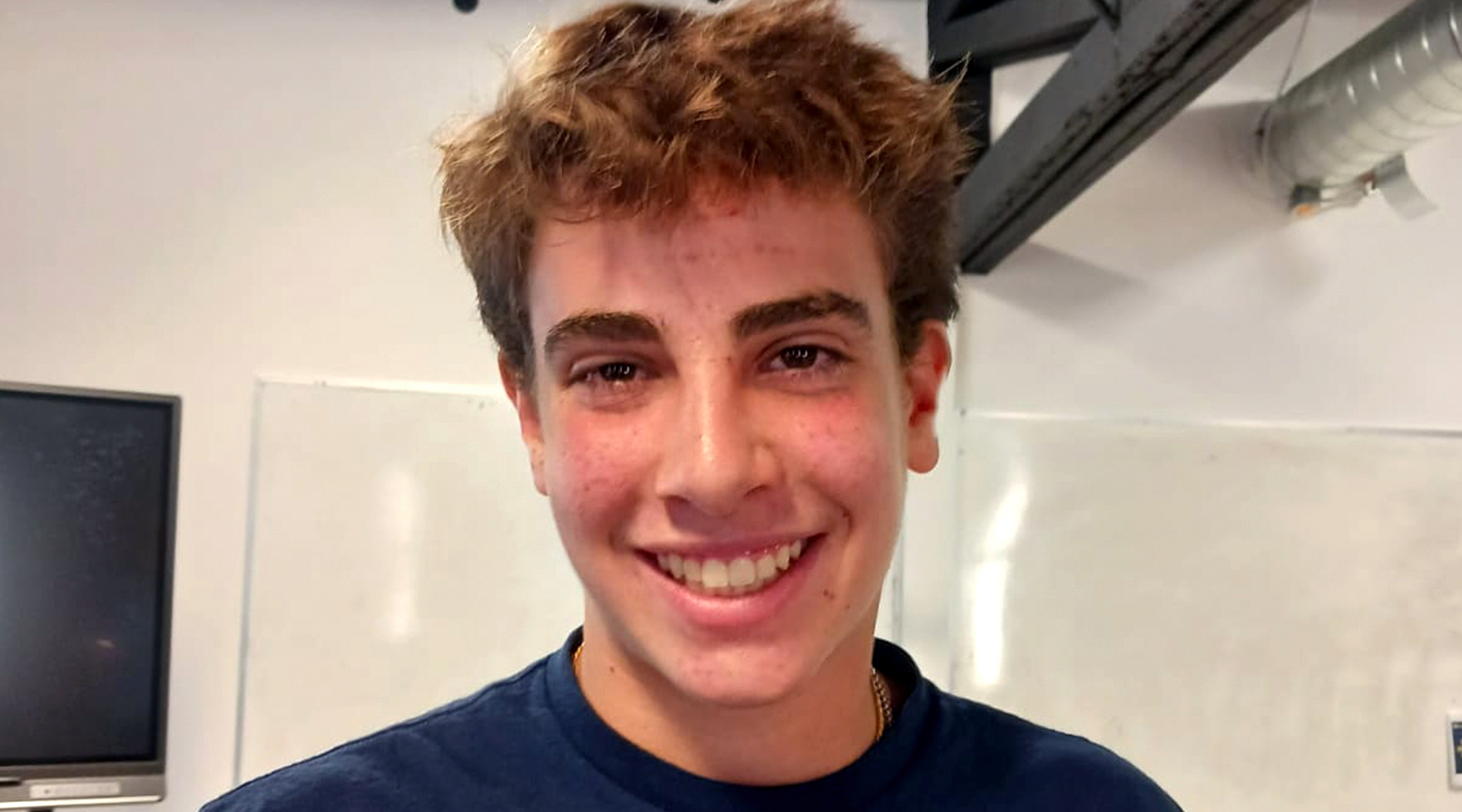
(Ami Gelman)
I’m hearing from adults that Israel is trying to do good things to help their citizens and destroy Hamas. [Teens] aren’t taking it as seriously as adults, they think it’s more of a joke than how serious it really is. Some of the jokes are that Hamas isn’t killing innocent people because no Israelis are innocent. It makes me sad that students make jokes about something so serious and sad.
Alissa Barnholtz, 17, Parkway Central High School, St. Louis
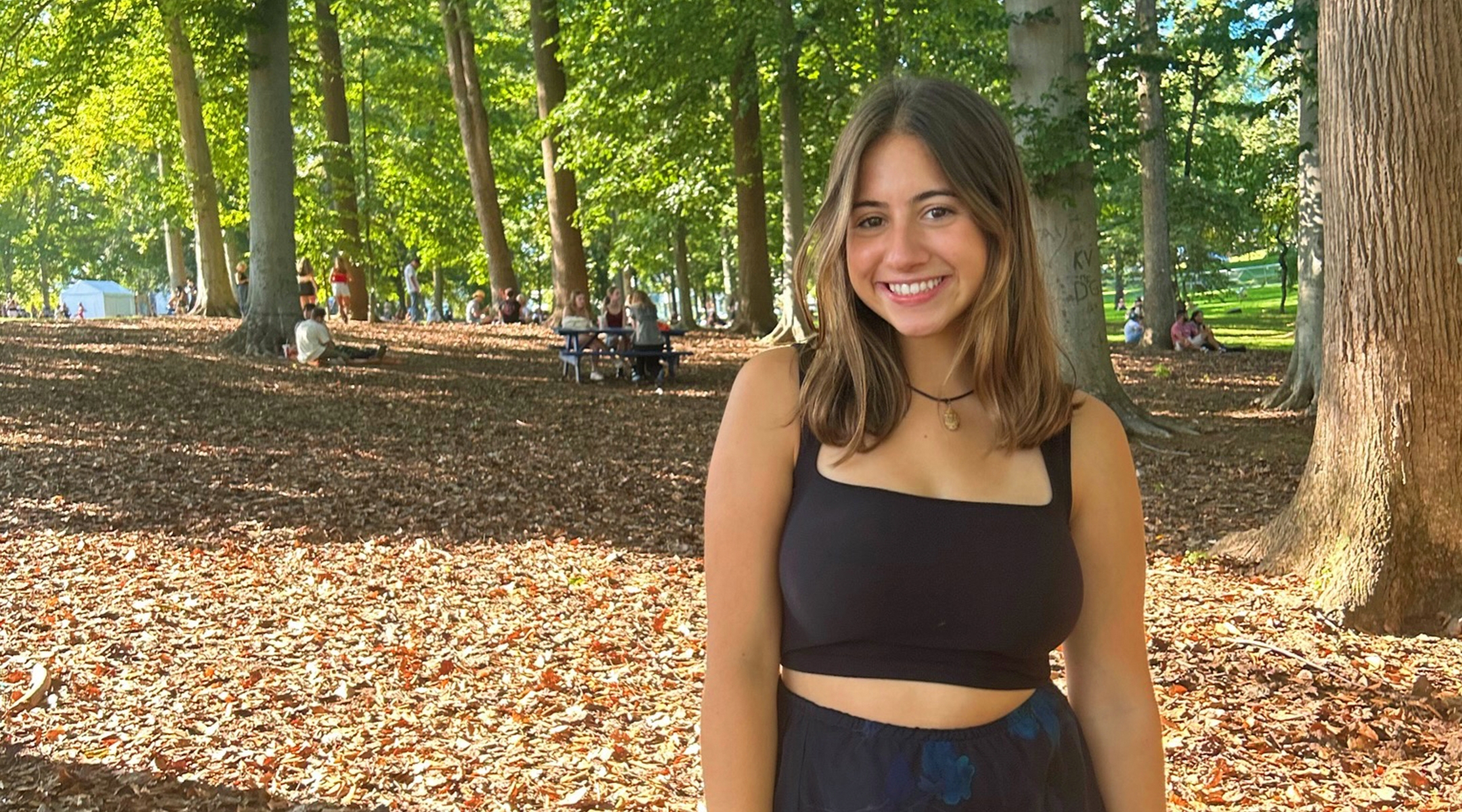
(Courtesy)
It’s hard to understand the complexity of the situation on social media. Saying it’s retaliation is kind of like justifying Hamas. Hamas is antisemitic. Their goal is to kill people and Jews. I deleted Instagram because it was a lot to see.
I haven’t personally experienced any antisemitism from this situation but I know people who have. It’s sad and it’s scary because I love being Jewish. I’m so happy to be Jewish, but right now I’m so scared to be Jewish. Right now, I’m lighting Shabbat candles with my family every Friday night which makes me feel better and makes me feel more connected to the community.
Davis Brown, 17, Parkway Central High School, St. Louis
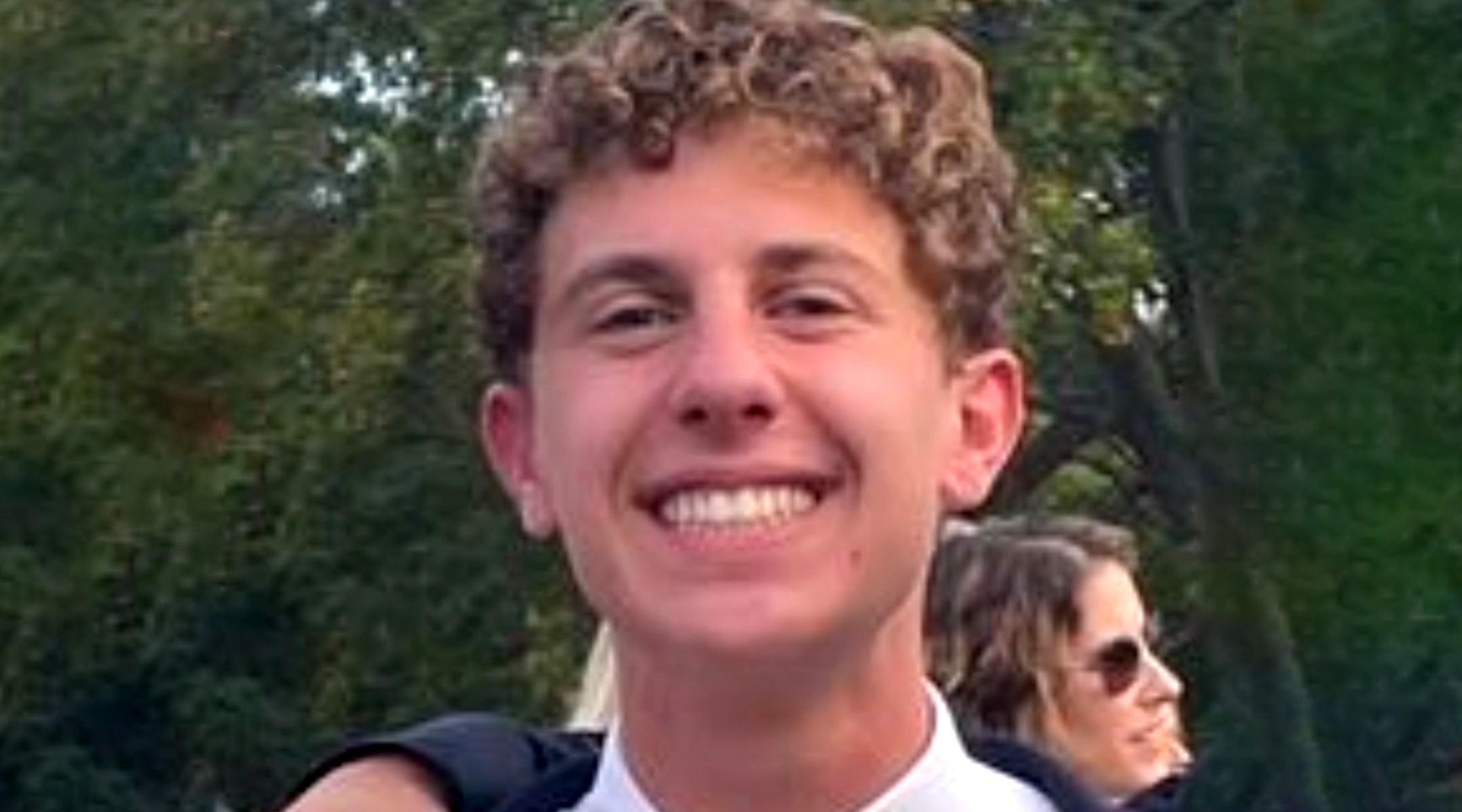
(Courtesy)
For many adults, Zionism is a partisan issue. It falls along the lines of Republican or Democrats; depends whether you are pro-Israel or pro-Palestine and your thoughts on Zionism. With teens I don’t see that as much. That might be because we don’t vote the same way our parents do. Our ties to Zionism aren’t driven by political parties. It comes from a personal belief or friends that are Jewish, our background. It makes the conversation a little bit different.
Elsie Cohen, 17, Latin School of Chicago, Chicago
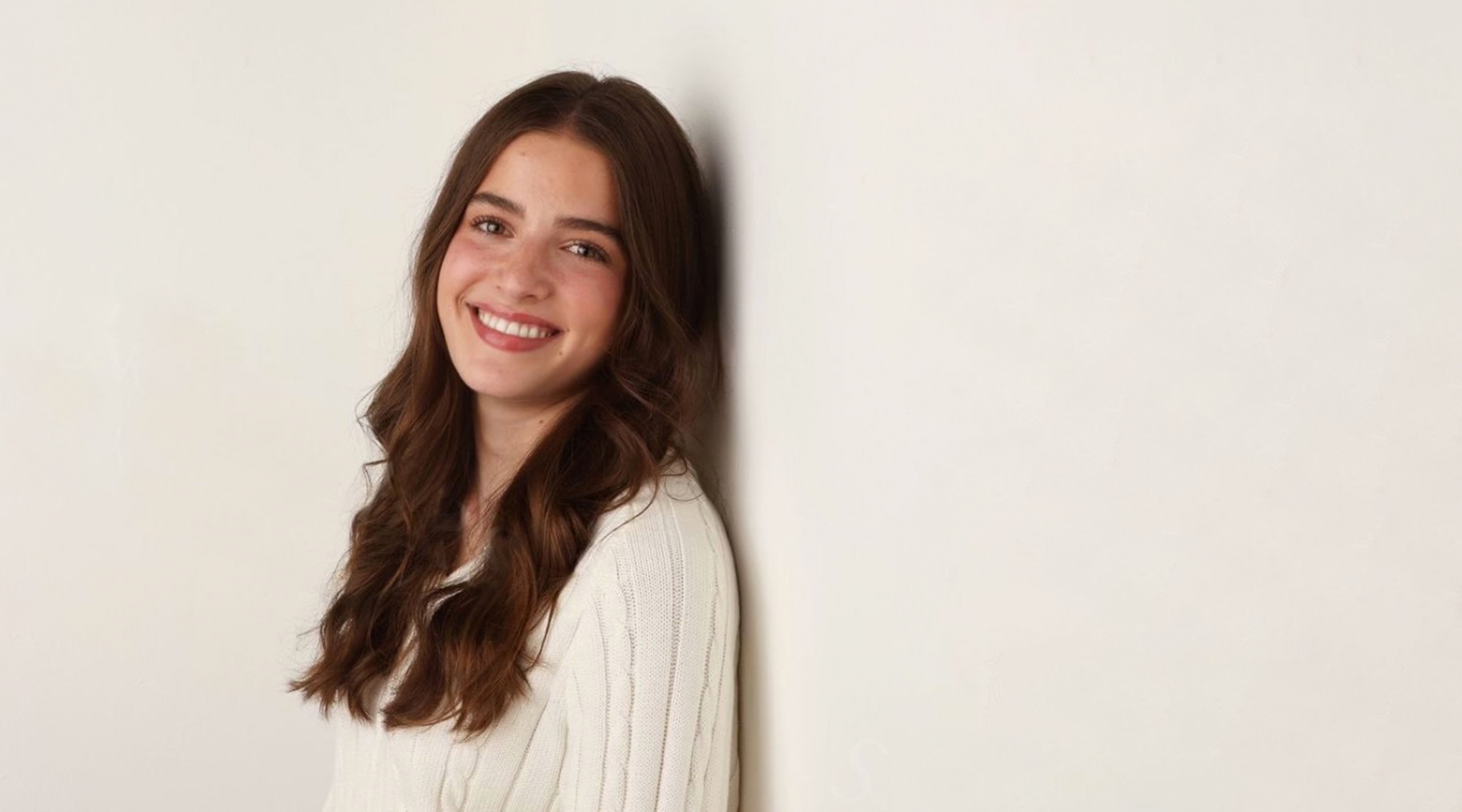
(Courtesy)
Most people around me are not discussing the war, which feels really lonely. I understand that it is a difficult topic to talk about, but it has to be discussed, and ignoring it makes my Jewish peers and me feel alone.
I have never felt bad about being outwardly Jewish in the past, especially considering I attended a Jewish school up until high school. However, in recent weeks, I have felt uncomfortable displaying my identity, and uncomfortable talking about the situation with those who are openly against my entire religion and people. I feel afraid to walk around wearing my Star of David necklace and I feel awkward being one of few Jewish people in my small school.
Holden Demain, 15, Denver Jewish Day School, Denver
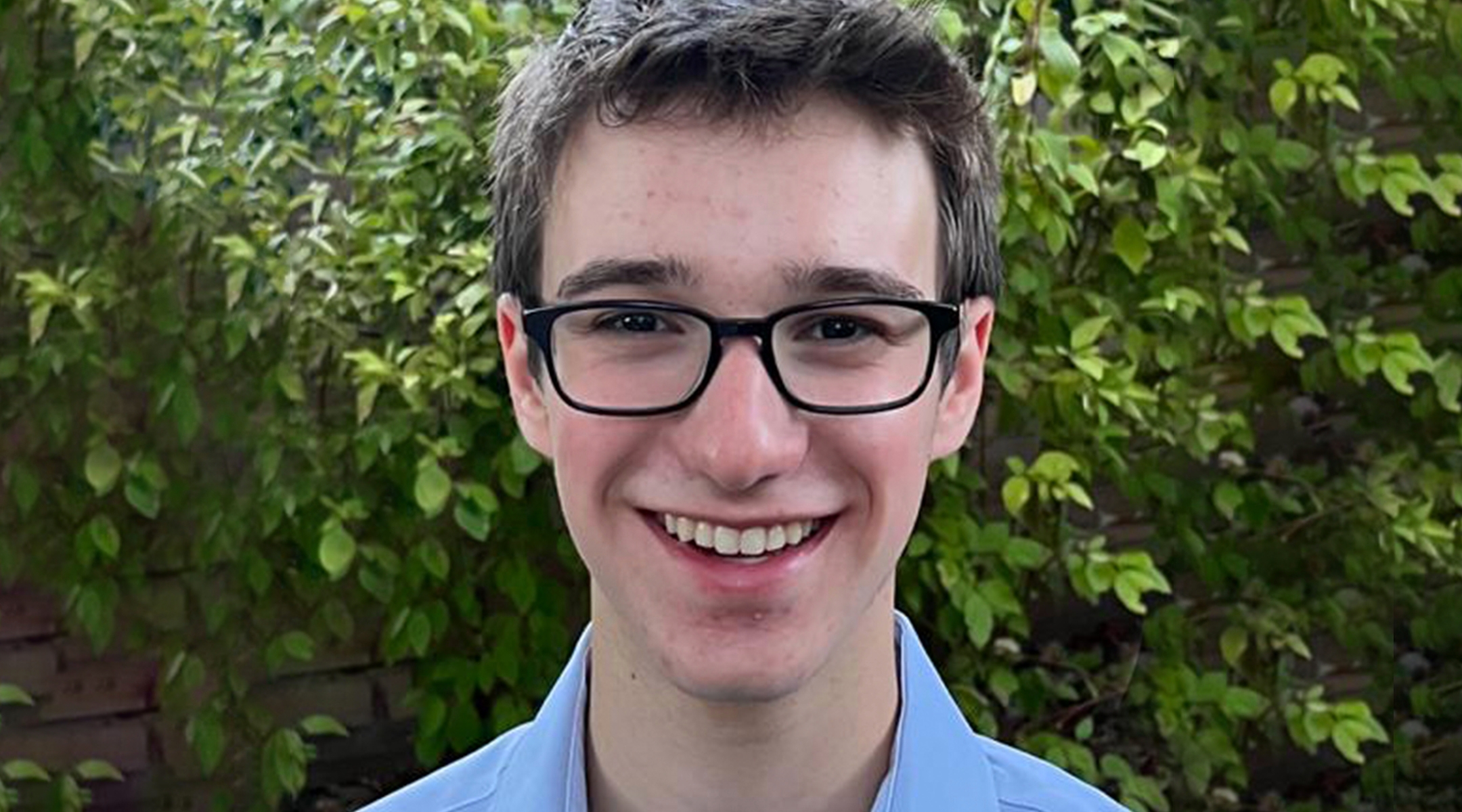
(Liron Amar)
I’m hearing a lot of fear from fellow Jewish teens. I think I’m also kind of feeling a little bit that some people are indifferent to what is going on and just generally don’t care very much. The people that care are scared and the people that don’t care, don’t. A lot of people are scared for family and friends that they might have in the region. There’s also fear of rising antisemitism in America, on college campuses. That definitely also plays a role.
There is this tendency to view [the attacks] as just happening to Israel and not to us, but people need to understand that Israel is just a manifestation of the Jewish people and I believe that an attack on Israel is an attack on the Jewish people. When people are indifferent to Israel, it makes me feel that they’re indifferent about being Jewish.
Nate Friedman, 17, Riverwood International Charter School, Atlanta
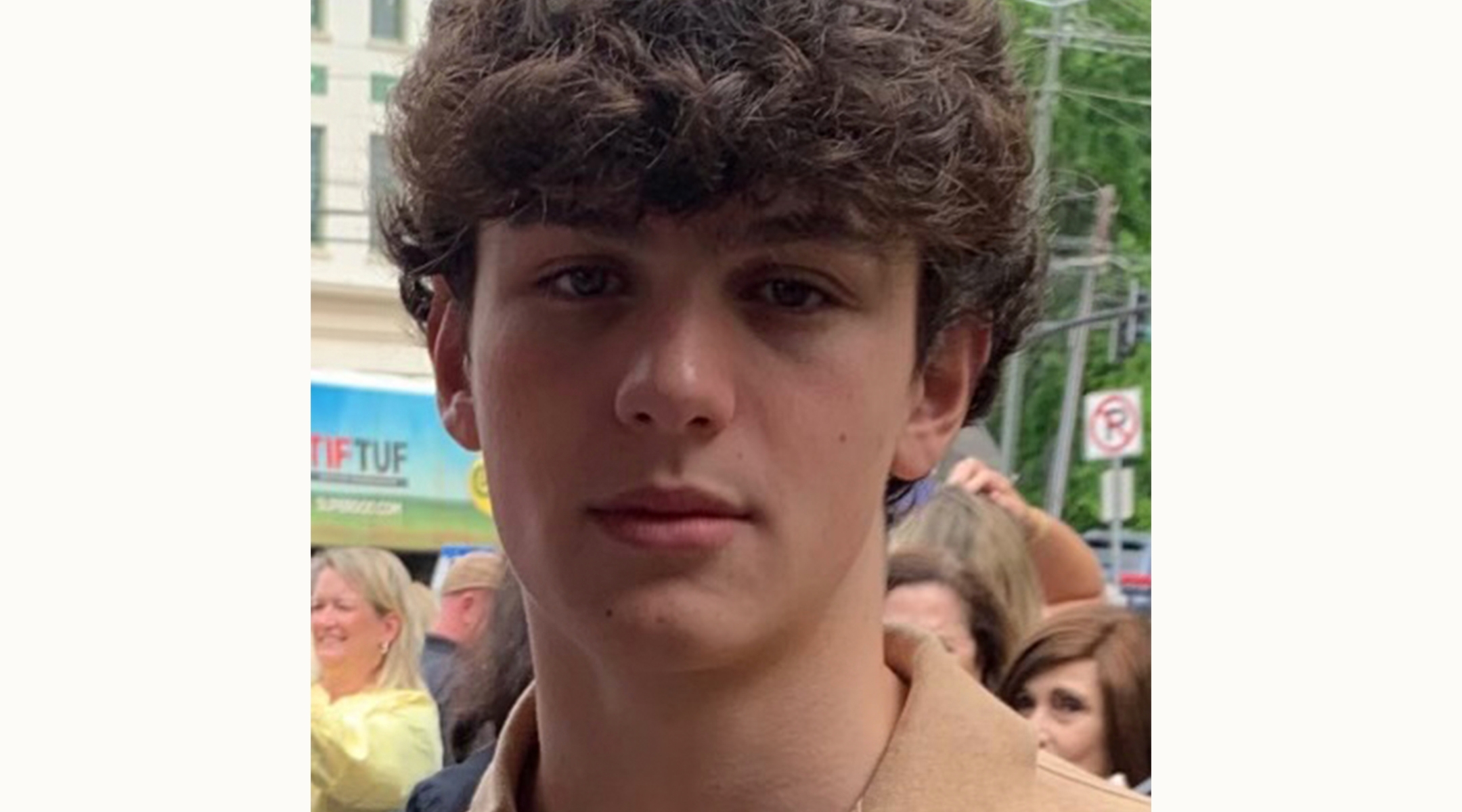
(Sandy Friedman)
From my Jewish friends, everyone’s really informed, and they all know about it, and everyone discusses how they’re disgusted by it. The main topic of discussion is just how there’s a lot of propaganda and how [other] people are really misinformed about what’s going on in Israel and the truth. We talk together, support each other and give each other a little pick-me-up to let each other know it’s going to be okay. It really makes me feel comforted, and it gives me hope.
My non-Jewish friends have made jokes about it; they just don’t understand the significance and seriousness of the situation. When I hear jokes from non-Jewish people, actually, it really upsets me. If you don’t know about it, don’t joke about it, don’t say anything about it. You need to educate yourself before you speak up on a sensitive subject.
Deborah Haspel, 16, Yeshivat Kadimah High School, University City, Missouri
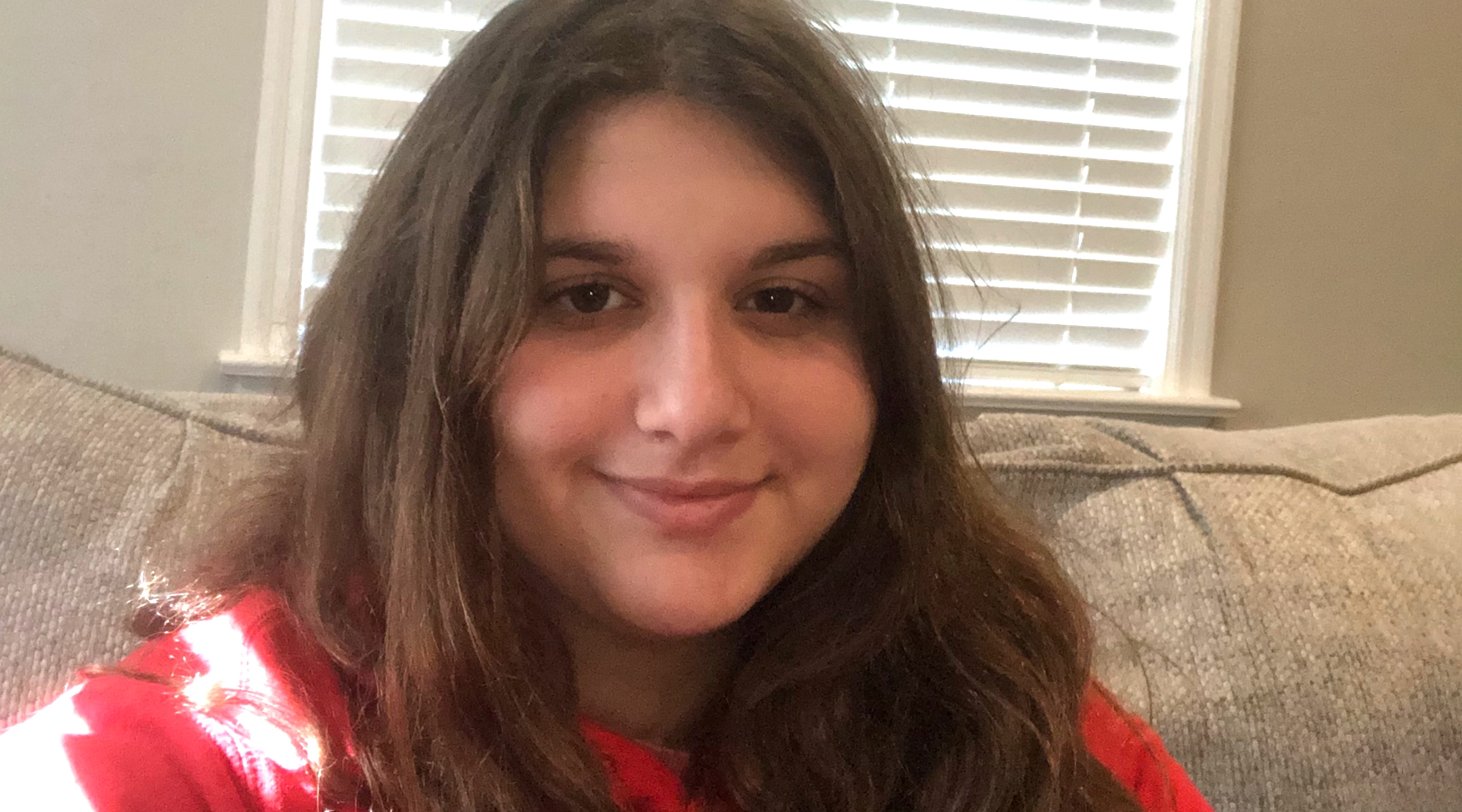
(Courtesy)
When talking about the whole situation in Israel with my peers, there has been a lot of frustration and sadness. Everyone is worried, really worried. We are making sure we are praying and donating to the IDF. It’s a very difficult situation. It puts a strain on everything. Making sure we are contributing and praying — it’s pretty much all we can do.
Rachel Katzke, 18, The Masters School, Ardsley, New York
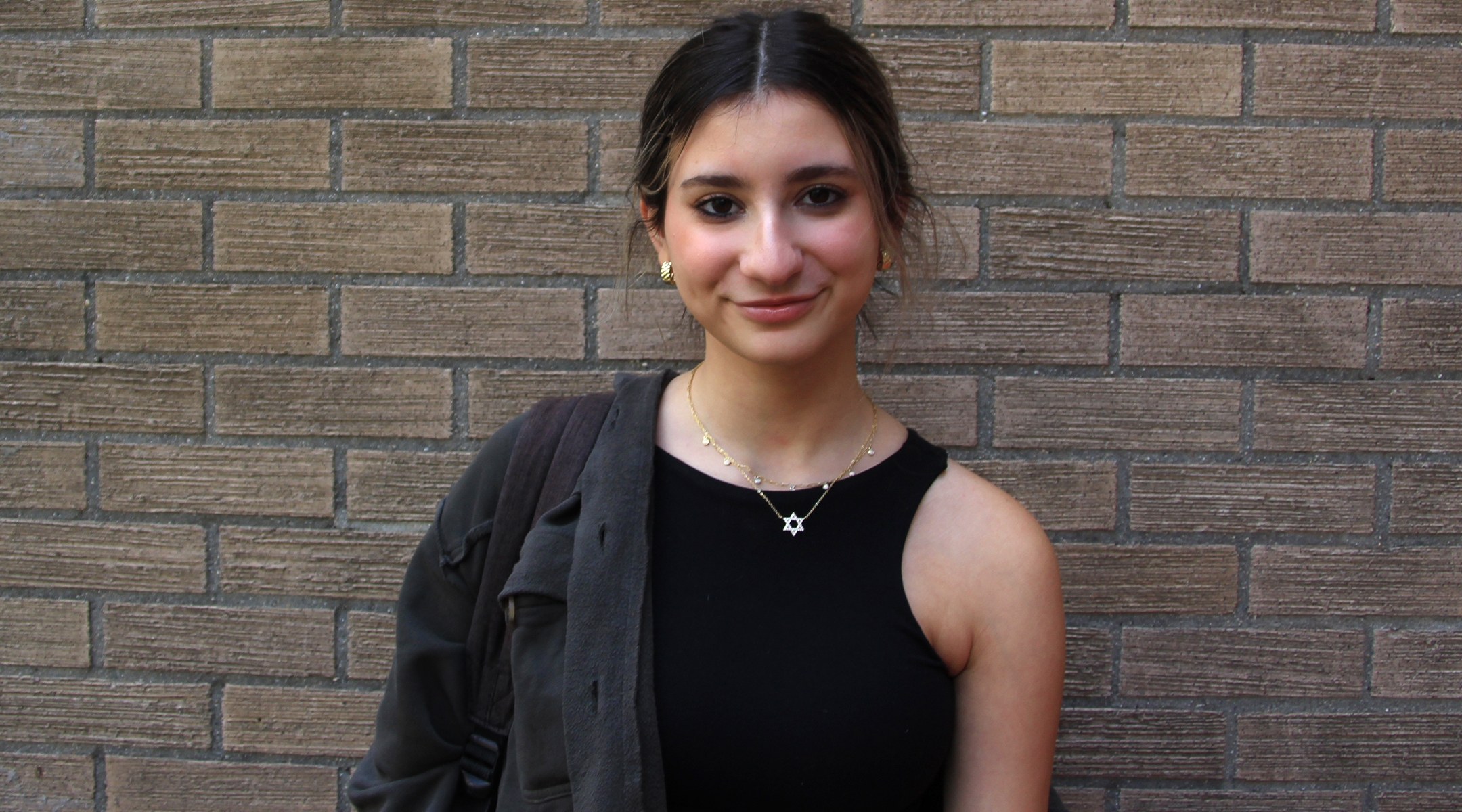
(Lydia Ettinger)
I refuse to be ashamed of my Judaism. Once again this conflict is so complex and hard and depressing that, yes, there are some things I purely cannot defend, like videos of IDF soldiers putting cement in the water pipes in the West Bank, but there are other cases where people don’t know context and that I can defend.
I feel on social media the words “colonizers” and “open-air prisons” just egg people on. When there is an infographic about how we are “colonizers” then everyone in the comments says “Free Palestine” it just feeds into the perspective that we are colonizers and that we have never lived in this land.
Lauren Elle Lavi, 15, Edmond Memorial High School, Edmond, Oklahoma
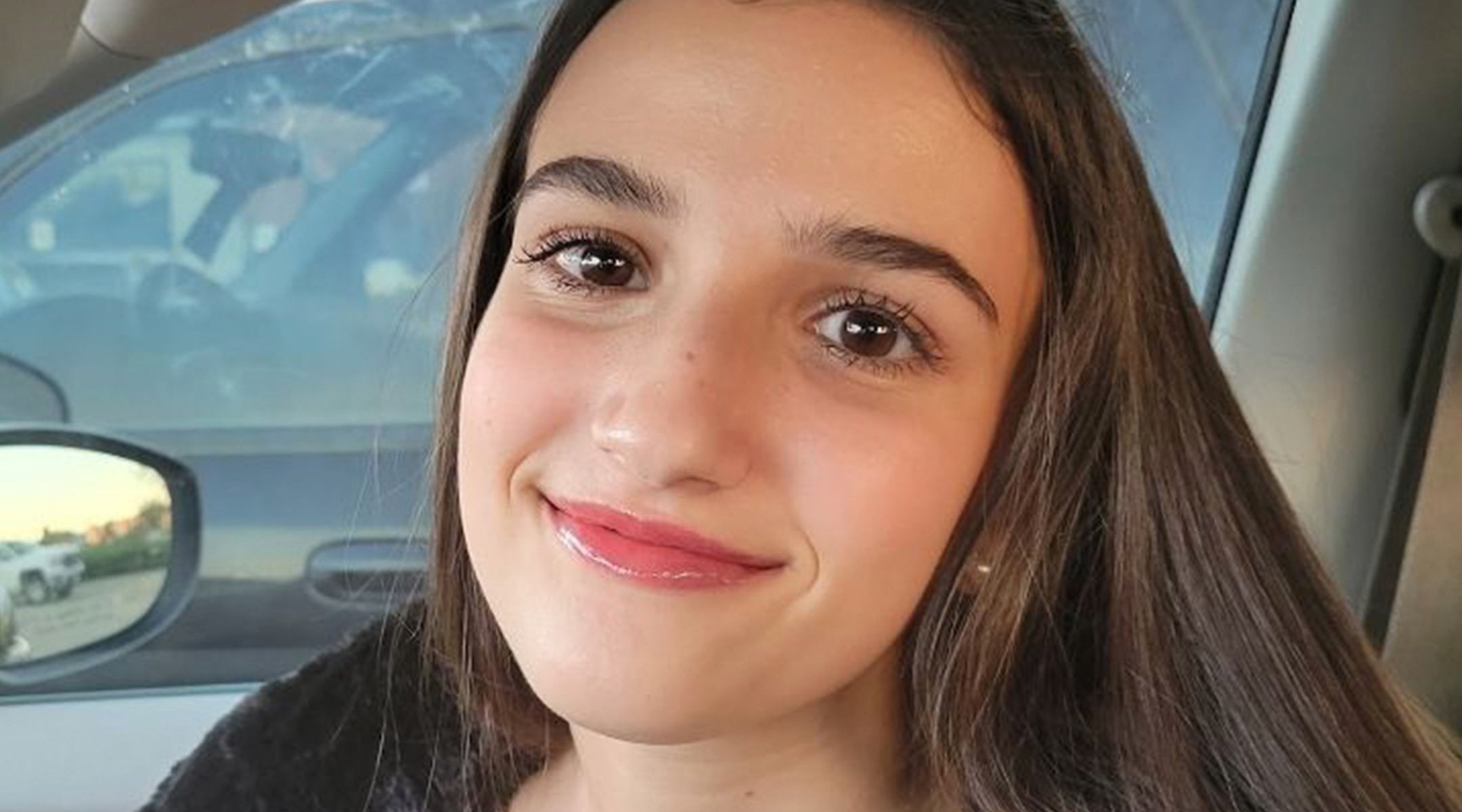
(Courtesy)
Even though I live so far from Israel, I still think it’s such a scary situation. Misinformation is being spread quickly through social media, and it spreads easier through teens versus adults. They don’t even realize what they’re saying is antisemitic. I think I was more open about being Jewish, prior to what’s going on in Israel. But now, I have more awareness of what other people think.
Kayla Minsk, 17, Atlanta Jewish Academy, Atlanta
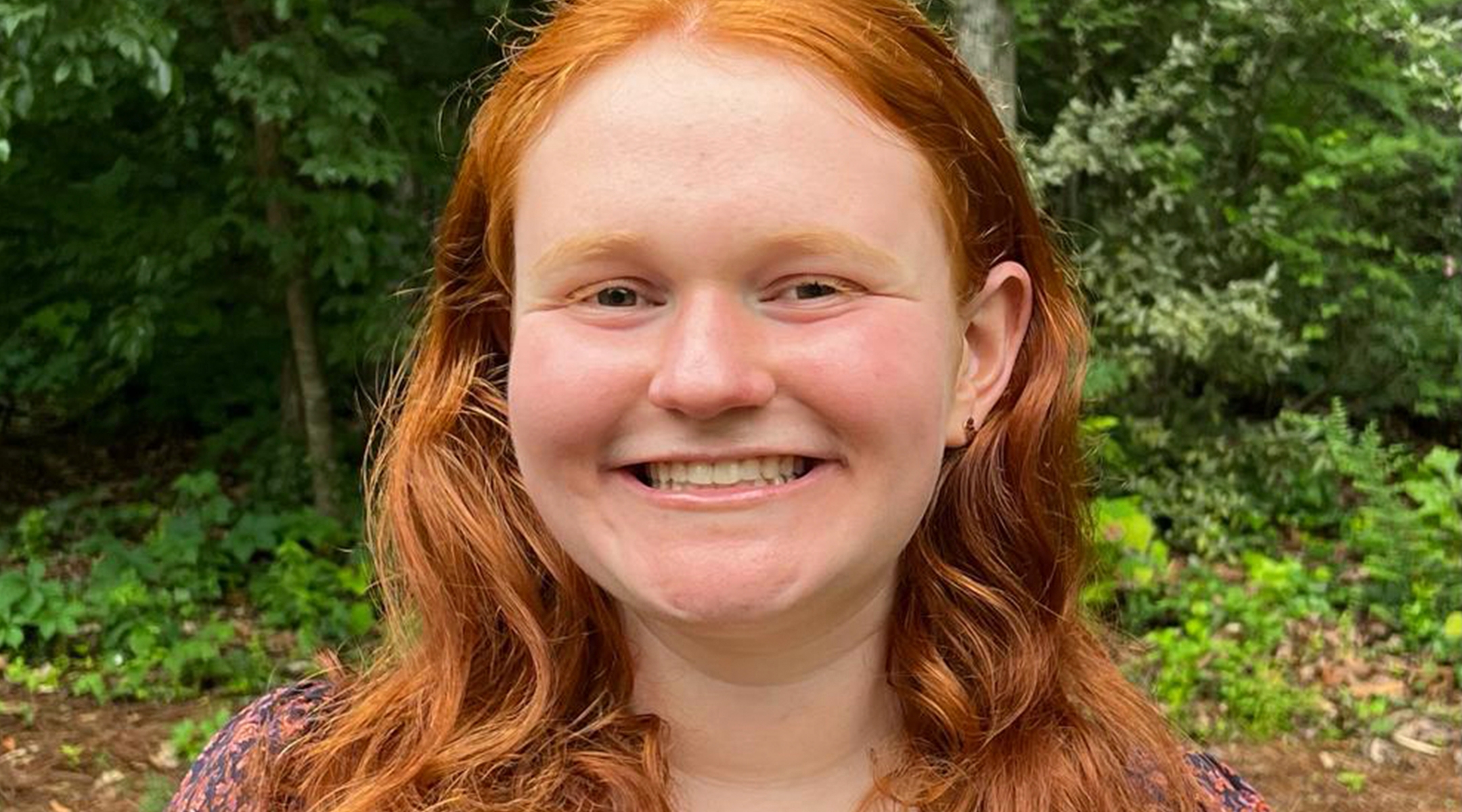
(Leora Frank)
I’ve been hearing from teens the pressure to perform what they’re supposed to be saying, what they’re supposed to be feeling. We get so caught up in what the ‘perfect’ reaction is, we watch the videos on social media, or we repost all of the flyers and the posters because we want others to know that we feel even if we don’t. I think that can take away from the real action that you can do. People aren’t being true about what they feel because of feeling judged, so the reaction is more performative rather than doing something like packing bags or writing letters to actually feel like they’re making an impact.
Celia Pincus, 17, Jones College Prep, Chicago
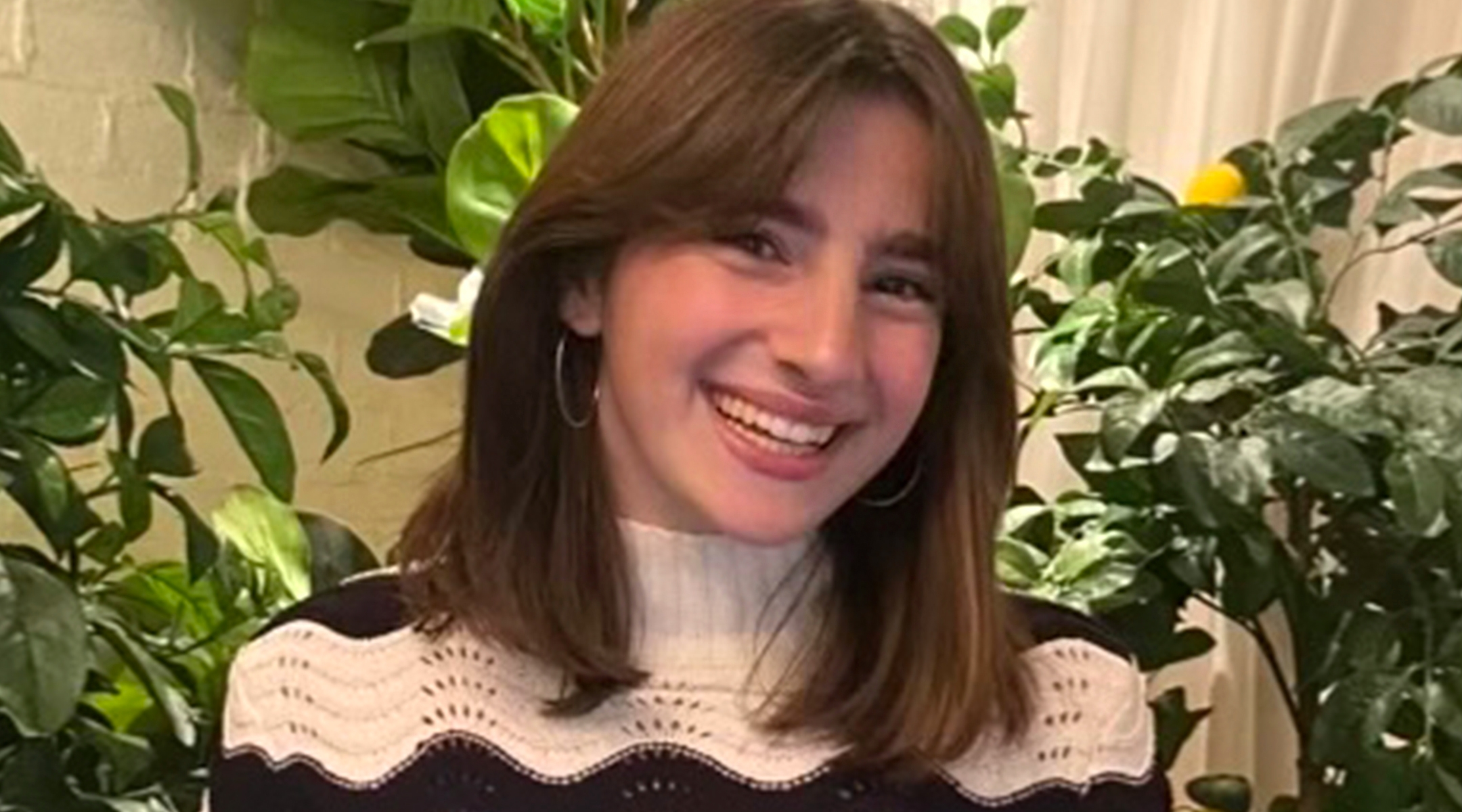
(Celia Pincus)
Teens are very active on social media concerning the situation in Israel. I would say there is a combination of pro-Israel, pro-Palestinian, and somewhere in between — really something from every viewpoint. The quantity of posts on social media is insane and, personally, I’m not someone who has ever posted anything political on social media. I feel overwhelmed. The news follows me everywhere and it’s not something I can forget about.
Just because I’m Jewish doesn’t mean I support all actions the Israeli government takes. And that makes me frustrated, it makes me sad, and it makes me angry. I don’t think that I feel less pride in being Jewish, or more afraid to show it. I’ve never been a person who has worn a Jewish star necklace or anything like that so I feel like I don’t have an identifier. I don’t think I’m concealing my identity, but I am definitely not broadcasting it to the world. And since I’ve never done that I don’t really feel any different, but it does feel like slightly more of a conscious choice.
Sam Pressman, 16, Sycamore High School, Cincinnati
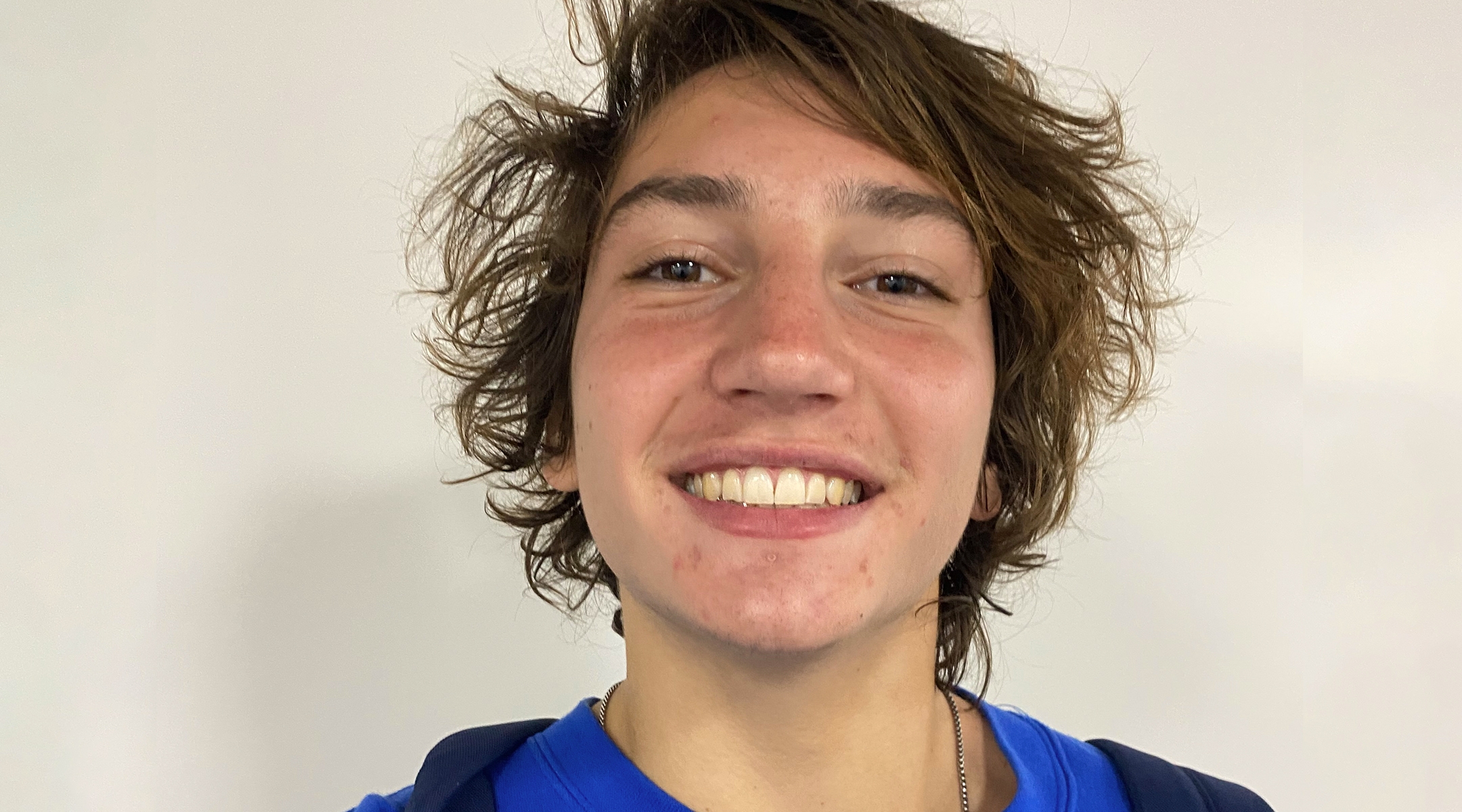
(Abigail Rubinstein)
I see a lot of things on Instagram, talking about how many Israelis got killed, and the situation happening. And it’s really making me feel like our world has gone horribly wrong. I was kind of in a crisis with all the events going on. I’ve always showed my Judaism. I’m not afraid to tell anyone and especially now you should have more pride in it being Jewish. Because if you try to hide it now, that gives Hamas what they want.
Ava Sherman, 17, Marquette High School, Chesterfield, Missouri
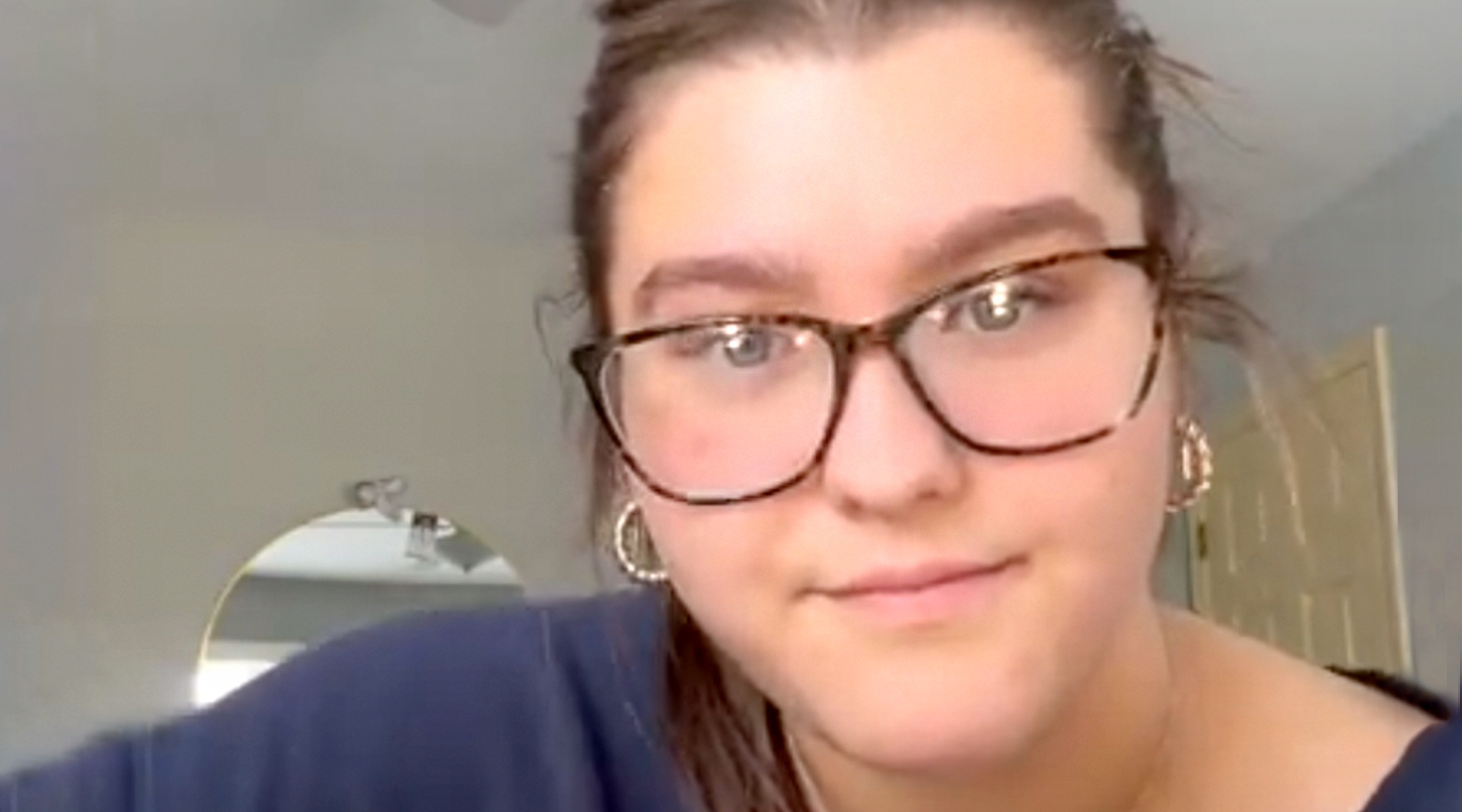
(Courtesy)
The main source of talk is about the false information and propaganda that is being posted on the internet and social media platforms that teens, who are always on social media, resort to. The best thing you can do is educate people on the correct facts. Be ready for somebody to ask you a question or come at you with an opposing view. The best thing you can do is defend yourself while also being neutral. There are no sides. It’s, “Do you want peace or do you support terrorism?”
Noah Shurz, 17, Denver East High School, Denver
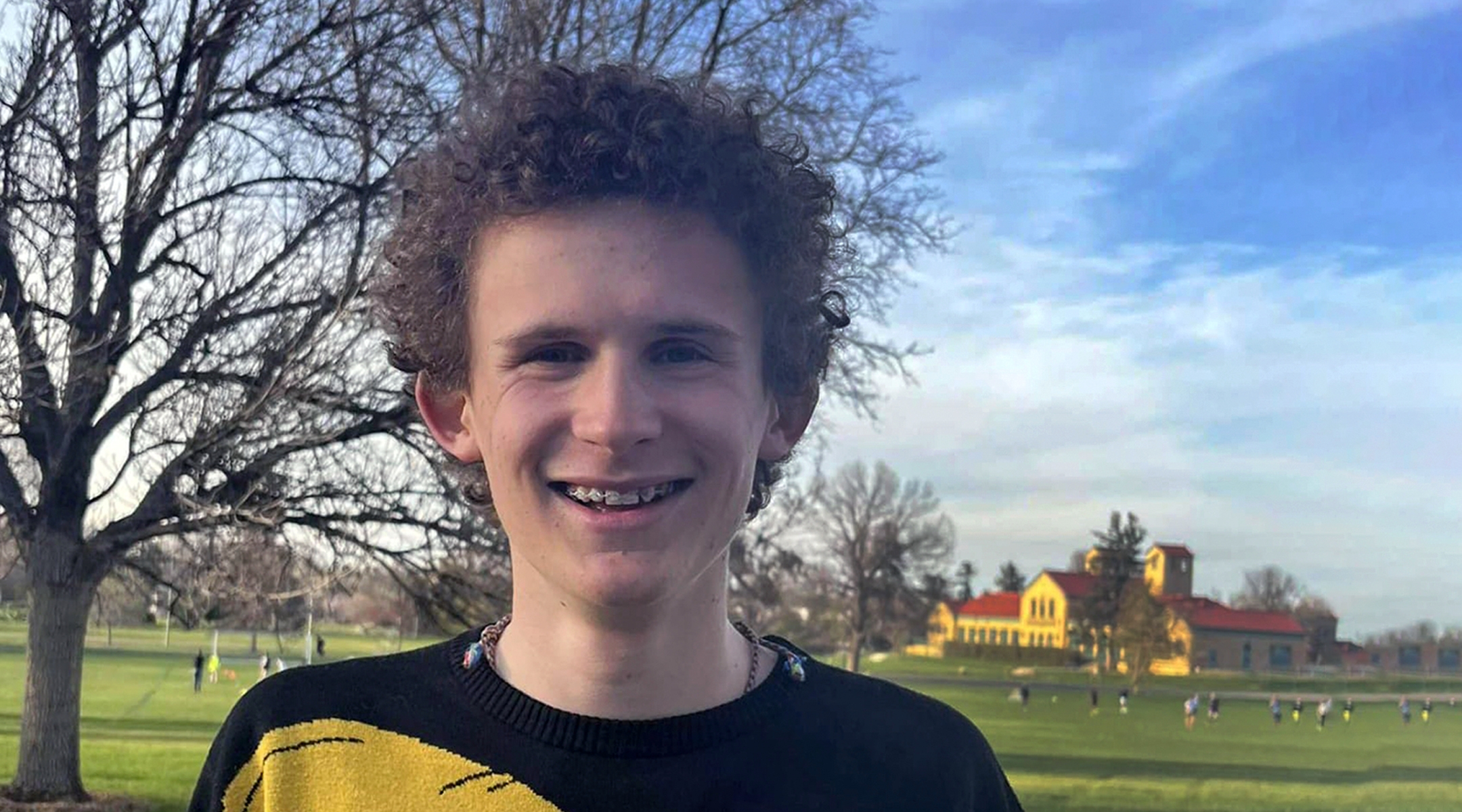
(Norah Krause)
It feels like it’s very divided. Some people on Instagram are pro-free Palestine, but some are pro-Israel. There’s a lot more people in the center. Around me people are very supportive, but don’t talk about it outside of social media most of the time. I never truly knew what side people were on until this. Someone that I had a lot of respect for, that I thought was very smart, I lost a little bit of respect for them because it was very blanket pro-Palestine, out of nowhere.
Ayalah Spratt, 15, The Masters School, Hastings, New York
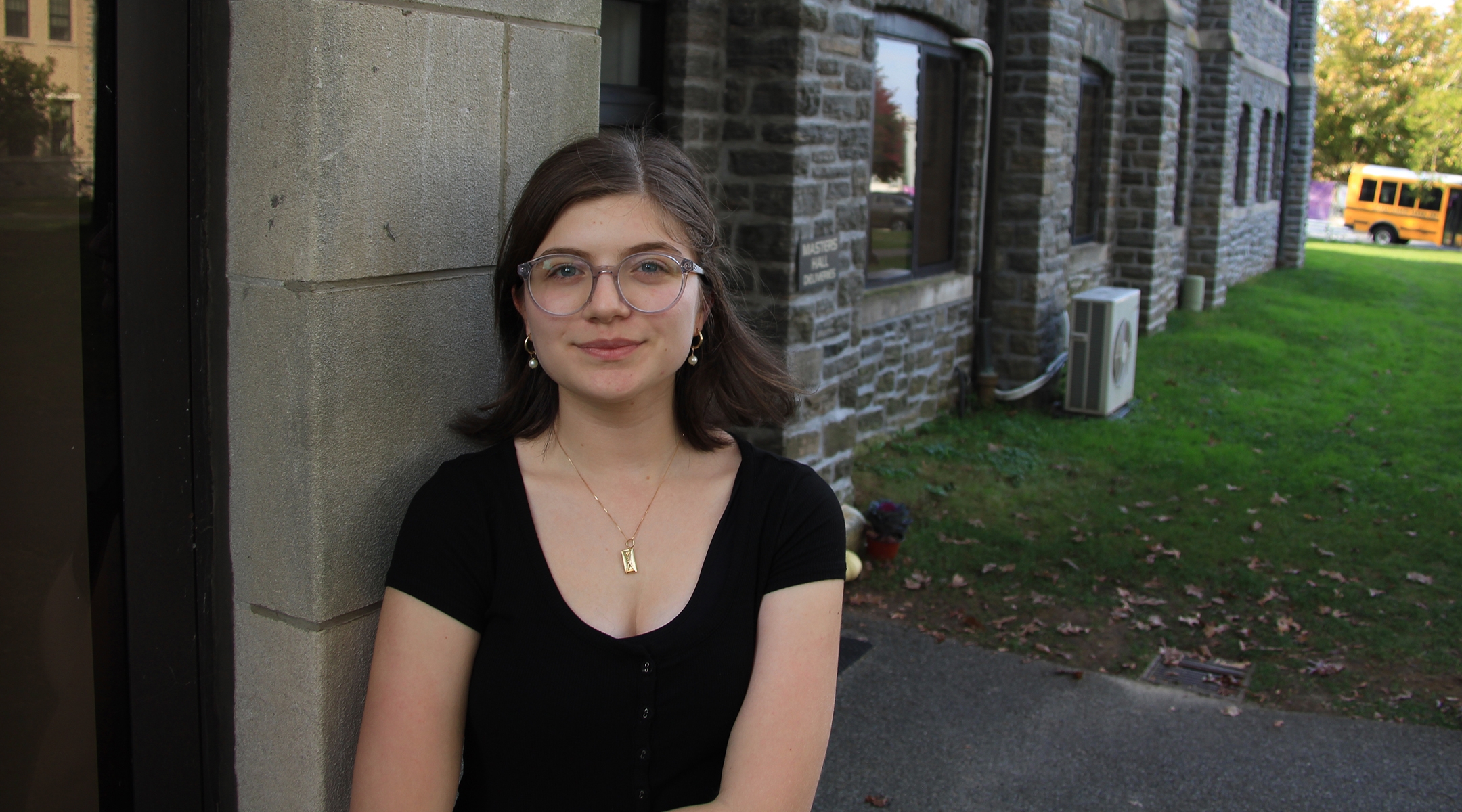
(Lydia Ettinger)
I’ve been hearing people in America diluting this down to such basic opinions when, in reality, this is such a complicated issue, especially from people who have no idea of what they are talking about. I’ve heard people make this into a pro-Israel versus pro-Palestine issue which at its core I don’t think it is — it’s not a political war, it’s terrorism, which is completely different. People are dying, people are being murdered and there is not a world in which that is OK.
I’ve been trying to stay off social media with all the things people are slapping onto their Instagram stories just like taglines, because it’s not really helpful. Even things that are promoting the things that I believe in, I think the whole process of just mindlessly posting on your story and feeling that you’ve done something like “Help Israel” I don’t think that does anything.
Andrew Wittenbaum, 17, Sycamore High School, Cincinnati
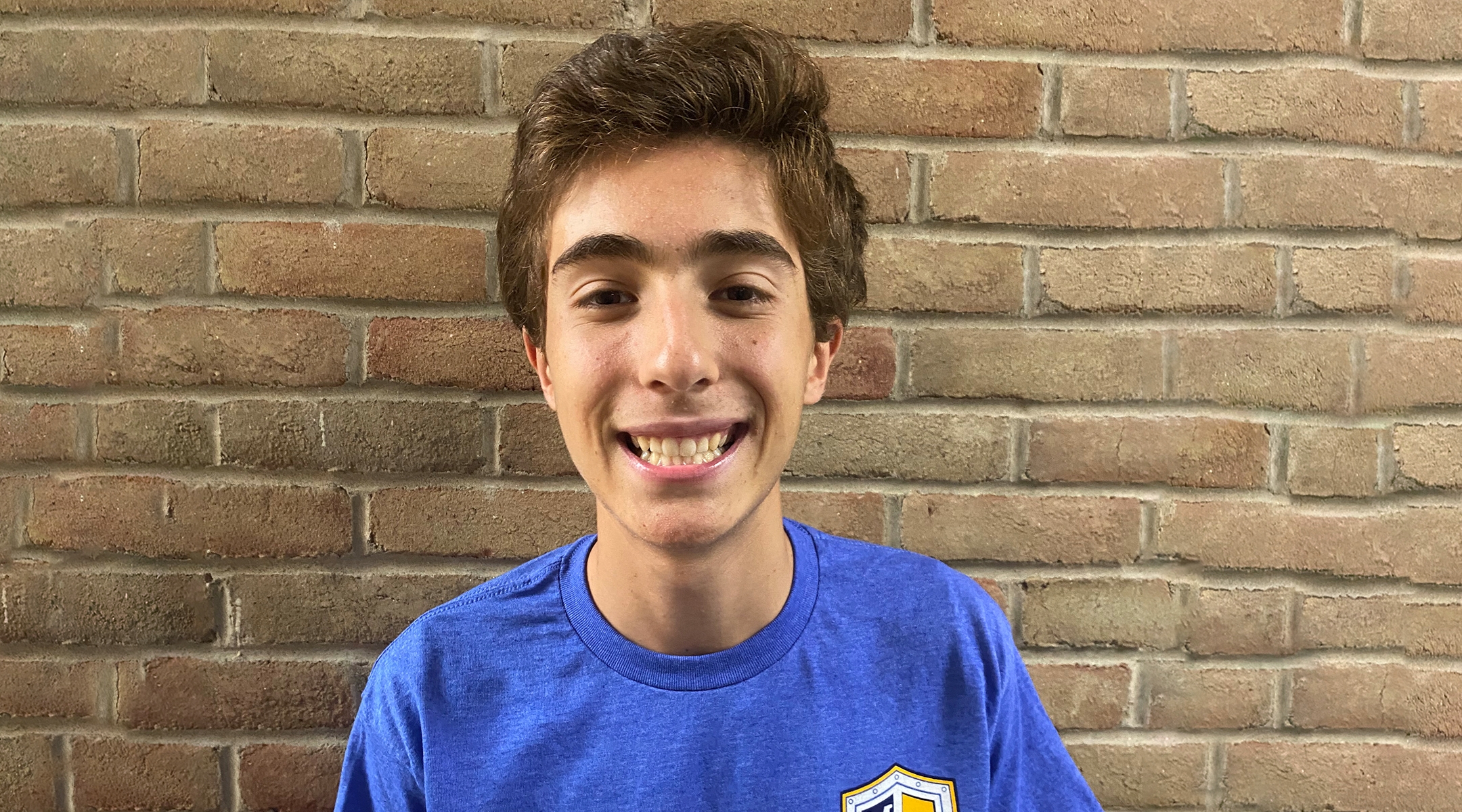
(Abigail Rubinstein)
There have been multiple incidents at school. I believe someone drew a swastika on the stall in the bathroom. They haven’t found out who it is, but they’re trying their best so everybody can be safe in the school. I do feel like my school supports me as a Jewish person. Because I know that there have been many announcements with our principal and our dean of students, and our counselors that are offering so much help that we can go to if we ever need that. And I know that they’re trying their best.
JTA has documented Jewish history in real-time for over a century. Keep our journalism strong by joining us in supporting independent, award-winning reporting.
